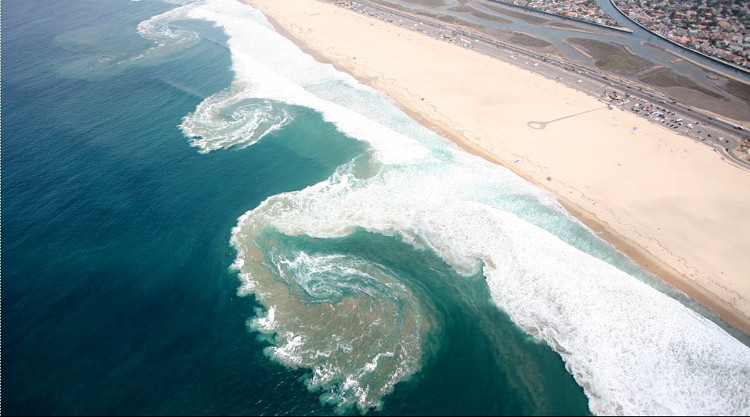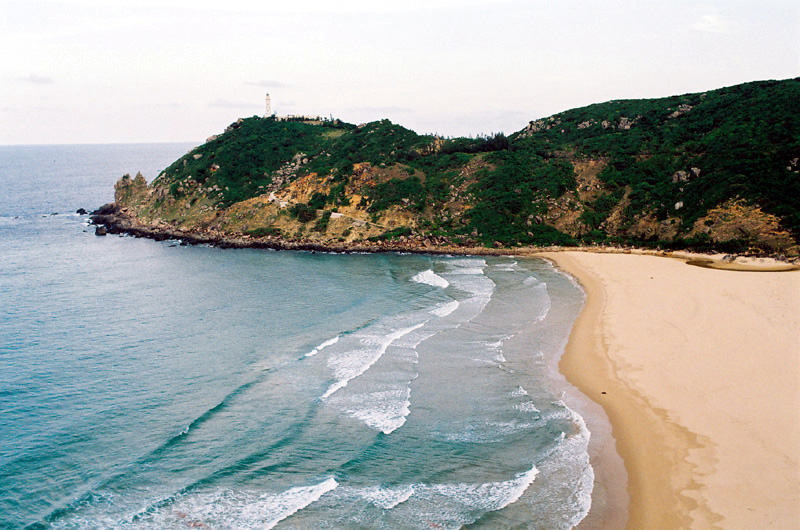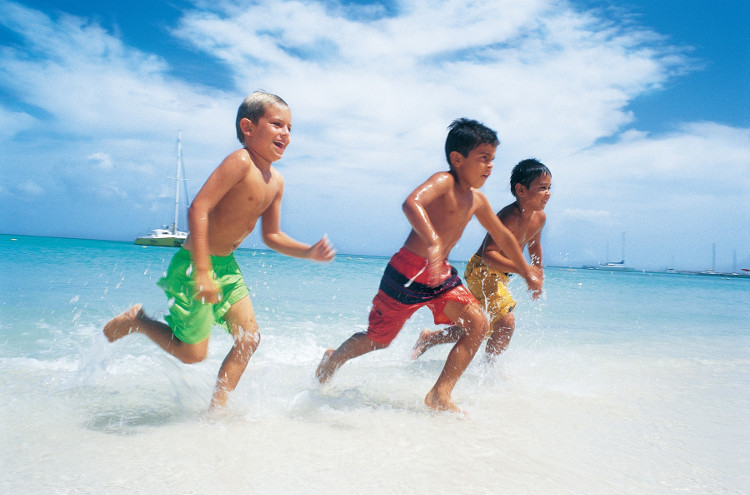You want to go to the beach, want to travel to this beach
and swim. You need to equip yourself with the knowledge and skills necessary to
protect your family and have a safe trip.
IDENTIFY AND AVOID OFFSHORE CURRENTS
Vietnam beaches
generally not too big waves, smooth sand, with a gentle flow. Before going in
the water, you should ask the locals which beach is safe to avoid the risk of
sand, jellyfish, sharp rocks ... The first thing to remember is to spend about
5-10 minutes to observe the signs. hazard and identify offshore currents.
Offshore currents
are like a small river that will take everything that falls on it away from the
shore, it is formed when sea water is continuously brought ashore and regrouped
into a stream that goes straight to the sea. It is the cause of most rescue and
drowning incidents while swimming in the ocean.
Because according
to the experience of the seafarers, where the water is calm, almost no waves,
it is a place with offshore waters.
When the waves
are not too big, people are often subjective, so the days are not big, the
cases of drowning are more. This flow can be identified by the following
characteristics:

 Offshore
currents are always a danger even for good swimmers
Offshore
currents are always a danger even for good swimmers
* It is darker because the water is deeper there.
* There is a
quieter water surface, usually with smaller waves.

Occasionally, debris /
bubbles can be found floating on the surface of the river, which is offshore
and flowing into the sea. When swimming, in any case, you should not turn your
back to the ocean because then it is impossible to observe and control the
dangers that will occur, for example a big wave is coming. Children who know
how to swim also need to be careful. It is important for parents to know their
swimming limits and abilities in order to protect themselves and their
children. Always pay attention to children at any time because there are always
unexpected events such as cramps, drowning. In addition, bathing near the shore
is not necessarily safe. Because when playing in the shallow water, even though
a child wears a buoy, at any time, a strong wave may appear, causing the child
to be swept away and beaten by the waves.
RESOVLE PROBLEM
Before getting
into the water, warm up the body with warm up exercises. Avoid overeating or
drinking alcohol before going to the beach to avoid cramps while showering. If
you have cramps, you should calmly pull in the direction of the muscle group
that is being pulled, relax the muscles to relieve pain, and then try to call
people to help to bring you ashore. It takes at least an hour of rest to enter
the water again.
Do not swim
alone, to be safe, you should go swimming with at least 1-2 other people to be
able to support each other in the event of an incident. If unfortunately
encountering an offshore flow, do not try to swim backwards but continue
swimming parallel to the coast until encountering waves from outside hitting
and bringing back to the shore.
For those who do
not know how to swim, or are exhausted, not physically enough to escape the
upstream, try to swim parallel to the coast, or signal to the rescue or nearby
people for rescue.
In addition,
visitors should not spend too much time in the sun before entering the water.
Do not let your stomach be too hungry or too full. Do not hold your breath for
too long when diving.
Pay attention to
the shore as soon as you see the following symptoms: The body itches, feels
cold; Unusual tiredness, headache or back of the neck; Cramps, visual
disturbances; Signs of bloating, elbow and knee pain.
If suddenly there is a burning sensation, there is a
possibility of a jellyfish bite. Get ashore immediately, apply lemon or vinegar
to the sore spot, then rinse with fresh water. If there is no vinegar, wash the
sting jellyfish with seawater and apply sand to cover. Thus, the venom of
jellyfish will be lessened.
NOTE ABOUT HEALTH
An important
consideration when bathing is to avoid heat stroke or cold. Sunlight is only
good for the body before 9am or after 3pm, in addition to those hours, the sun
is very harsh, causing great damage to the skin and eyes. Therefore, protect
your skin with sunscreen, wear sunglasses, wear a wide-brimmed hat when
swimming and when sitting on the shore.

Along with that
should drink water regularly to avoid sunstroke. When experiencing symptoms
such as hot dry skin, loss of consciousness, nausea, shortness of breath, etc.,
you should put in a shady place, cool by applying a cloth or absorbent towel
and contact a lifeguard for assistance. support.
Families with
young children should pay extra attention, towels and umbrellas are always
necessary items to bring when going to the beach. Children should not be
exposed to the sun for too long and bathed for 2 hours at sea. When you finish
bathing on the shore, you need to wipe, dry clothes for children, avoid letting
children wear wet clothes to play in the sand because the sea is very windy, so
it is easy for children to get cold.
